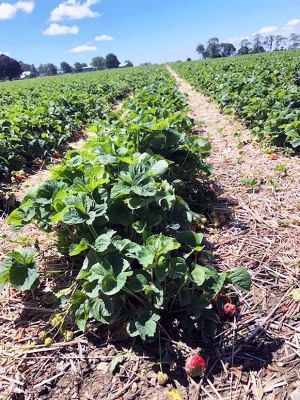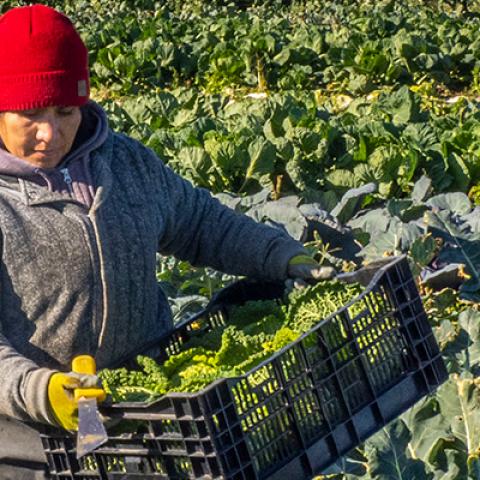NRCS is opening a new signup to help Rhode Island farmers transition to organic agriculture – sign up before March 15th to be eligible for the second round of fiscal year 2024 funding.
Before crops can be certified organic, farmers must carefully manage their land without using prohibited inputs like synthetic pesticides for 36 months. During this transition period and during the first years after certification, farmers often face many technical and market challenges. The Organic Transition Initiative is a $300 million multi-agency USDA effort to support this transition and build and strengthen organic markets. USDA’s Agricultural Marketing Service, Natural Resources Conservation Service and Risk Management Agency each have a major role in the Organic Transition Initiative.
NRCS will provide technical and financial assistance to farmers to help them to implement a new organic management standard through the Environmental Quality Incentives Program (EQIP). NRCS will help farmers to adopt the new organic management standard, which allows flexibility for farmers to get the assistance and education they need such as attending workshops or requesting help from experts or mentors. It supports conservation practices required for organic certification and may provide foregone income reimbursement for dips in production during the transition period.

Core Practice
Organic Management (Practice Code 823)
Facilitating Practices & Activities
- Conservation plan supporting organic transition (Practice Code 138)
- Transition to organic design (Practice code 140)
- Conservation cover (Practice code 327)
- Conservation crop rotation (Practice code 328)
- Cover crop (Practice code 340)
- Field border (Practice code 386)
- Nutrient management (Practice code 590)
Higher payment rates and other options are available for underserved producers including socially disadvantaged, beginning, veteran, and limited resource farmers and ranchers. Eligible producers include farmers, forest landowners, and other producers beginning or in the process of transitioning to organic certification.
NRCS will also increase organic expertise throughout the organization by creating positions for organic experts at each of its regional technology support centers. These positions will provide training to NRCS field staff who provide direct services to USDA customers. This is in addition to the existing NRCS assistance for organic and transitioning producers including conservation planning, conservation practice implementation and financial assistance for all offered conservation practices.
Ranking Questions
Additional Information
EQIP Organic Initiative
The National Organic Initiative, funded through the Environmental Quality Incentives Program (EQIP), is a voluntary conservation program that provides technical and financial assistance for organic farmers and ranchers, or those interested in transitioning to organic.
Learn MoreHistorically Underserved Farmers and Ranchers
The Agriculture Improvement Act of 2018 (2018 Farm Bill) includes provisions that address the unique circumstances and concerns of socially disadvantaged, beginning, limited resource, and veteran farmers and ranchers (“historically underserved producers”).
Learn More

